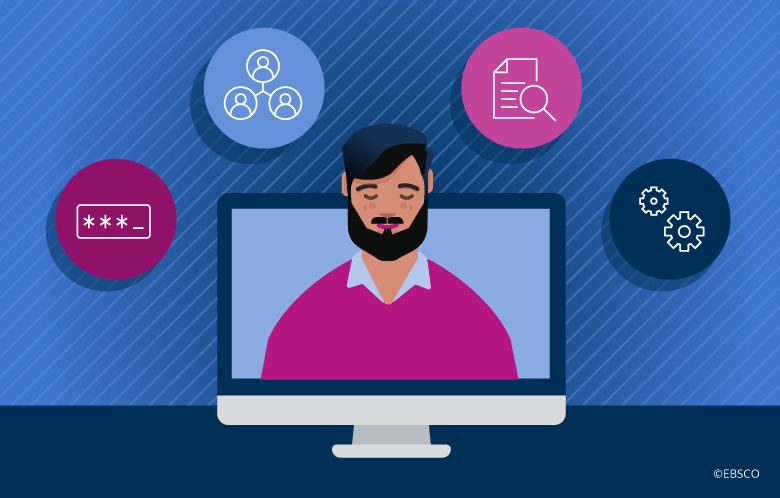Update: EBSCO now supports Blackboard and Moodle along with Canvas.
In 1983, American ground forces on the Caribbean island of Grenada were under fire and needed to contact the naval vessels off the coast for air cover. Unfortunately, they learned the hard way (as described in The Washington Post) that the communications systems between the different armed services weren’t integrated, and they couldn’t talk to each other. The troops tried various workarounds, but finally had to resort to using a personal credit card to call Fort Bragg back in North Carolina, ask Fort Bragg to contact the Navy’s Pentagon offices in Washington, D.C., and from there, finally relay their message down to the ships back in Grenada.
Now obviously, this is an extreme example of the importance of interoperability and integration. However, during this pandemic, when institutions are relying on remote access more than ever, it is imperative for Learning Management Systems (LMS) to be able to seamlessly communicate with the discovery tools of their associated libraries.
In Learning Management Systems, students electronically access course schedules, curricula, and syllabi. Their professors will often try to embed links in the syllabi that take students directly to the relevant articles via their library. Unfortunately, this is often easier said than done, as it is not uncommon for faculty to post incorrect links (a frequent mistake, for example, is assuming that the URL in the library’s address bar is the proper way to link to an article and then copying and pasting that link into the LMS).
As a result, when students click on these links, they are denied access or prompted to log in multiple times. If you are a student with a full course load who is always racing the clock to get assignments done, and you can’t access the content you need in a timely fashion because the links in your syllabus don’t work, you’re going to be pretty frustrated. And if you’re the professor who wasted all that time copying and pasting links, well, you’re not going to be happy either.
During this pandemic, when institutions are relying on remote access more than ever, it is imperative for Learning Management Systems (LMS) to be able to seamlessly communicate with their associated libraries.
During this pandemic, when institutions are relying on remote access more than ever, it is imperative for Learning Management Systems (LMS) to be able to seamlessly communicate with their associated libraries.
This is where EBSCO Discovery Service™ (EDS), EBSCOhost®, and Learning Tools Interoperability (LTI) come in. LTI is an education technology standard developed by the IMS Global Learning Consortium, which has certified EBSCO on the latest version, LTI Advantage version 1.3. It’s a way for a Learning Management System to talk to another system. Essentially, LTI in EDS/EBSCOhost helps the professor work within the LMS to search for and then embed the proper links from the library into the syllabus. It then also allows the student to click on these links and open articles inside the LMS. Students can also see an article’s detail record, as well as save and export the article. Neither the professor nor the student ever has to leave the LMS, nor do they have to log in separately to the library, to EDS/EBSCOhost, or any other intermediate system.
The way it works is that a user is authenticated by the Learning Management System or Virtual Learning Environment (VLE) and then can be passed through by way of a signed launch message. LTI integration is native to EDS/EBSCOhost, so there is no additional fee to take advantage of this functionality.
Currently, EBSCO supports LTI for the Canvas, Blackboard®, and Moodle learning management systems, with Desire2Learn (D2L) currently in the works.
During COVID-19, no one wants the additional worry of whether or not students are metaphorically stranded on an island, cut off from the resources they need. And professors don’t need to be concerned about the potential frustration and embarrassment that comes from discovering that their students were forced into finding their own time-consuming workarounds to get to the course content. With LTI in EDS/EBSCOhost, interoperability and integration between Learning Management Systems and discovery tools and databases is taken care of, and no one even has to place a call to the Pentagon.
